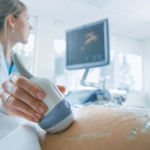Understanding the Connection Between Hormones and Mood Swings: How Your OBGYN Can Help
Calling them ”mood swings” sometimes feels like an understatement. It’s one thing when you can trace anger, frustration, or sadness to a specific source that’s easily ridden out. But when you’re in a foul mood with no identifiable reason, it can feel even more disorienting. You may feel helpless and confused over your emotions, which then amplifies their intensity.
If this sounds familiar, it’s possible your hormones are to blame. Here, we dig deeper into the connection between hormones and mood swings, and explore some strategies to help you cope.
How Are Hormones and Mood Swings Connected?
Hormones influence neurotransmitters, which are brain chemicals that regulate your mood. Women encounter many hormone fluctuations throughout different periods of their lives, and therefore, many mood swings — all for different reasons, with different results.
Puberty & Early Adulthood
As early as puberty — when your body is transitioning from “child” to “young adult” — hormones play a significant role in mood. Your brain has started strengthening the parts that enable intense and complex emotions, but the area responsible for regulating these emotions is still developing. As a result, moods may shift more frequently and intensely.
Once menstruation begins, you may experience other mood changes up to two weeks before your period arrives. Feelings like anger, anxiety, and irritability are attributed to fluctuating estrogen levels that occur during the luteal phase of your cycle. These symptoms fall under the broader condition known as premenstrual syndrome (PMS), which can also be accompanied by weight fluctuations, breast tenderness, and headache, among other physical symptoms.
For up to eight percent of women, the physical and mental symptoms of PMS are severe enough to interfere with their daily life. These intense mood and bodily changes are known as premenstrual dysmorphic disorder (PMDD), a condition that was first recognized in 1987.
Pregnancy & Postpartum
Pregnancy also brings an onslaught of hormone changes, which can be sudden and intense. For many women, mood swings peak at gestation of six to ten weeks, wane during the second trimester, and ramp up again as their due date nears. Afterward, the sudden decrease in estrogen and progesterone following childbirth can lead to intense feelings of sadness or anxiousness known as the “baby blues,” which are usually experienced two to three days following delivery.
Perimenopause & Menopause
Lastly, but certainly not least, perimenopause and menopause also lead to a decrease in estrogen, which can initiate more lasting mood changes, like depression. Experienced by approximately 40% of women, mood changes related to menopause may mimic those of PMS, and can include irritability, anxiety, and difficulty concentrating. Yet, unlike PMS, which lasts several days at a time, the menopausal transition lasts several years.
What Can You Do to Address Hormonal Mood Swings?
Sometimes, mood swings can be managed with lifestyle modifications. For example, mild mood changes might be alleviated with:
- Exercising regularly
- Getting plenty of rest
- Talking to a loved one
- Engaging in hobbies
- Practicing self-care
But if your mood swings have begun to harmfully interfere with your daily life, there’s no need to suffer through them — especially if they’re intense or long-lasting. Your women’s healthcare provider can help you determine if your mood changes are indeed related to hormones, and if so, what treatment can alleviate them.
Schedule a Women’s Wellness Appointment With Covington Women’s Health Specialists
As your partners in women’s wellness, our providers can help you address hormone imbalances experienced during any phase of life. We’ll alleviate the symptoms of intense emotional changes or any other difficulties you may encounter. We’re also here to support you through non-hormonal challenges, whether it’s uncomfortable pregnancy symptoms, urinary incontinence, endometriosis, or a variety of other conditions or infections. Request an appointment with one of our providers using our online form or by calling (770) 385-8954.









